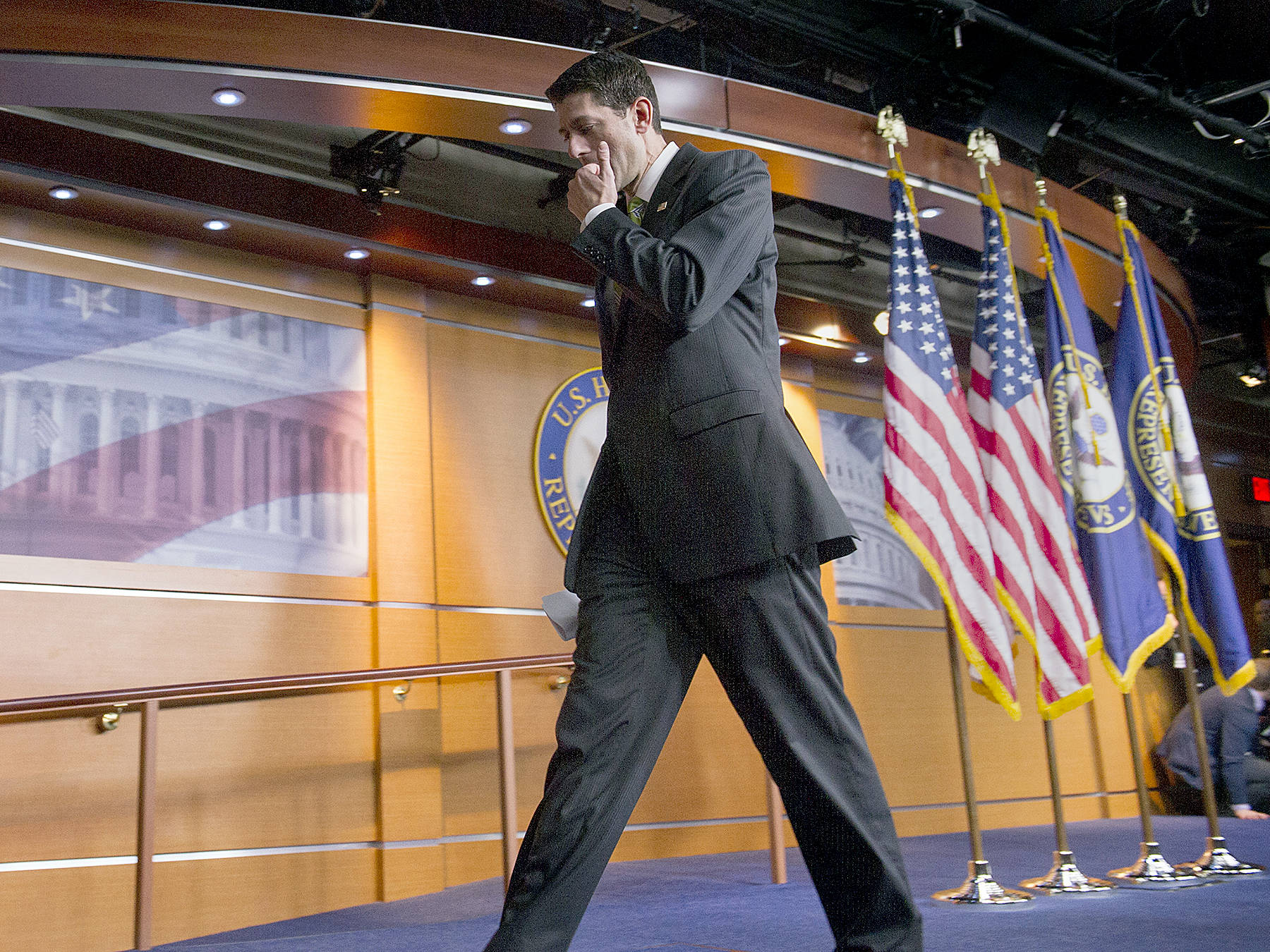Earlier today, Congressional Republicans gratified Seattleites everywhere by utterly failing to repeal Obamacare, after seven years of chest-thumping against the 2010 health care reform package. This morning, Speaker of the House Paul Ryan went to the White House to tell President Donald Trump that he doesn’t have the votes to repeal and replace the ACA with the Republicans’ hastily-drafted alternative, which would have reduced health coverage for millions of Americans and reduce taxes on the richest by more than $275 billion.
“We’re going to be living with Obamacare for the foreseeable future,” Ryan later conceded, according to The New York Times. While it’s possible that Republicans could mount another repeal effort, the seven-year quest to repeal Obamacare is currently dead in the water. Unless it “explodes,” as President Trump predicted earlier today.
POTUS has already done one thing to encourage that explosion: on his first day in office, Trump signed an executive order repealing the individual mandate—the penalty of about $700 that Americans are supposed to pay if they don’t have insurance.
Trump’s order repealing the individual mandate removes one incentive for healthy, young people to buy health insurance, since they’ll no longer be taxed for lacking it. This could potentially be enough to send the entire ACA health care market into a self-reinforcing death-spiral, both statewide and nationally. As Larrey Levitt, senior VP at the Kaiser Family Foundation, told The Washington Post in January, “Potentially the biggest effect of this order could be widespread waivers from the individual mandate, which would likely create chaos in the individual insurance market.”
Stephanie Marquis, spokesperson for WA Insurance Commissioner Mike Kreidler, says that assessment applies in Washington. “It’s definitely a concern,” she says, “if the federal government is not going to enforce the mandate.”
“In a best case scenario,” she adds, “people will continue to buy health insurance because they know it will protect them from harm” if they get cancer or hit by a car. “In the worst case scenario,” she says, “you have only the people who need health insurance buying it.” If that happens, “You have a sicker pool, costs go up, and health insurance becomes more unaffordable for everybody,” says Marquis.
“In the early ’90s, we passed health care reform at the state level with a mandate,” Marquis recalls. “One year later Republicans took control of the statehouse. They repealed the mandate and kept everything else.” It didn’t go well. “By the late 1990s all of the insurers had pulled out of the market,” says Marquis.
On the bright side, Pam MacEwan, chief executive officer of the Washington Health Benefit Exchange, says at present the state’s health insurance exchange is healthy. There are nine companies currently selling insurance on the exchange (some states only have one company), and while premium increases have risen, they have not done so astronomically.
“We have a really nice trend of lower price increases than before ACA,” MacEwan says. She says Washington has benefited from bipartisan support for expanding Medicaid, which benefits private insurers by putting some poor, sick people on government health care rather than their own. She says the biggest question mark for private insurers has been the fate of the ACA.
“The thing that has been most threatening to the stability of the market in Washington state was the attempt to repeal the Affordable Care Act. Carriers like predictability,” she says. “This will help to have this settled.”
In short, Trump may have already sliced the ACA’s Achilles heel by repealing the individual mandate. But otherwise, Washington’s health insurance market is in great shape with no long-term structural problems, says Marquis. “We’re lucky in Washington because we have comparatively … good competition” between many different insurers, she says.
Daniel Person contributed to this report.








